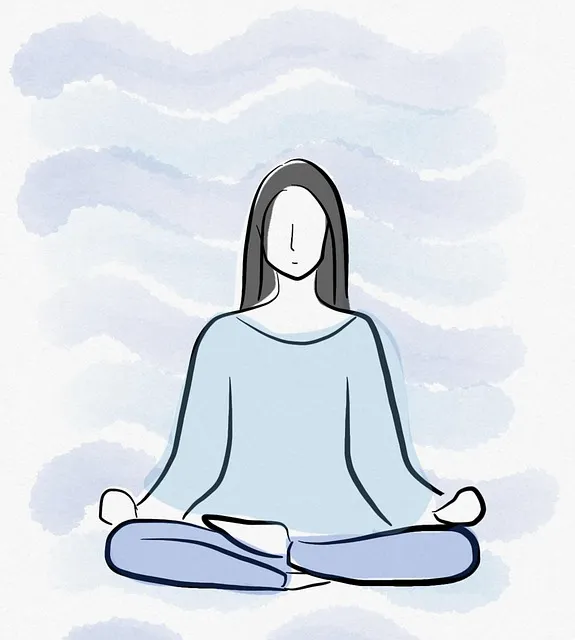The Parker Kaiser Permanente Mental Health Access Center emphasizes the importance of self-awareness exercises for understanding individual mental wellness needs, particularly through cultural sensitivity in healthcare practices. They advocate for a structured yet flexible self-care routine incorporating journaling, physical activity, mindfulness, and sleep. Evidence-based practices like Compassion Cultivation Practices (CCP) and Emotional Intelligence (EI) are key to emotional resilience. Regularly reassessing and adapting routines based on personal growth and life changes is crucial, with the center's programs offering guidance through empathy and risk assessments.
“Unwind, rejuvenate, and prioritize your mental wellness with this comprehensive guide to crafting a self-care routine. Inspired by the expertise of the Parker Kaiser Permanente Mental Health Access Center, this article breaks down the essential steps for understanding your unique mental wellness needs. We explore the building blocks of a nurturing routine, incorporating evidence-based practices for sustained wellbeing. Learn practical tips for adjusting and maintaining your self-care regimen to flourish in today’s world.”
- Understanding Your Mental Wellness Needs: A Guide from Parker Kaiser Permanente Mental Health Access Center
- Building Blocks of a Self-Care Routine: Prioritizing Your Mental Health
- Incorporating Evidence-Based Practices for Lasting Wellbeing
- Sustaining and Adjusting Your Routine: Tips for Long-Term Mental Health Management
Understanding Your Mental Wellness Needs: A Guide from Parker Kaiser Permanente Mental Health Access Center

Understanding your mental wellness needs is a crucial step in developing a self-care routine that truly works for you. The Parker Kaiser Permanente Mental Health Access Center offers valuable insights and guidance on this journey. They emphasize the importance of self-awareness exercises as a foundation for personal growth. By taking time to reflect and understand your emotional responses, thought patterns, and triggers, you gain valuable insights into what supports and challenges your mental wellness.
This process involves cultivating cultural sensitivity in mental healthcare practice, recognizing that our experiences and perspectives are shaped by our unique cultural backgrounds. Engaging with a healthcare provider with cultural competency training can facilitate this exploration, ensuring your self-care practices are sensitive to your identity and background. Embracing these aspects fosters a deeper connection with yourself and paves the way for creating a personalized, effective self-care routine.
Building Blocks of a Self-Care Routine: Prioritizing Your Mental Health

Building a robust self-care routine is an essential aspect of maintaining and enhancing your mental wellness, as highlighted by experts at Parker Kaiser Permanente Mental Health Access Center. Prioritizing your mental health involves creating a structured yet flexible schedule that incorporates various activities designed to nurture your mind and soul. This journey begins with self-reflection and identifying personal needs. Many find solace in mental wellness journaling, a powerful tool for processing emotions, tracking progress, and setting achievable goals. It provides an opportunity to gain insights into one’s thoughts and feelings, fostering better understanding and self-awareness.
Additionally, engaging in regular physical activity, practicing mindfulness techniques, and ensuring adequate sleep are cornerstone activities that form the foundation of a holistic self-care routine. These practices contribute to mood management, reducing stress levels, and improving overall emotional resilience. The Healthcare Provider Cultural Competency Training plays a pivotal role in guiding individuals toward culturally sensitive resources and strategies tailored to their unique backgrounds and experiences. Embracing these practices is a proactive step towards taking charge of one’s mental health and cultivating a balanced lifestyle.
Incorporating Evidence-Based Practices for Lasting Wellbeing

Incorporating evidence-based practices is a cornerstone of establishing a robust self-care routine for lasting mental wellness. The Parker Kaiser Permanente Mental Health Access Center emphasizes the importance of tailored strategies that address individual needs. One such practice, Compassion Cultivation Practices (CCP), has gained recognition for fostering emotional resilience and reducing stress. By cultivating compassion towards oneself and others, individuals can enhance their overall well-being.
Additionally, Emotional Intelligence (EI) plays a pivotal role in self-care. Developing EI skills allows individuals to better understand and manage their emotions, leading to improved mental health. Preventing burnout is another key aspect; implementing strategies like setting boundaries, prioritizing rest, and engaging in stress-reducing activities are essential practices to avoid emotional exhaustion. These evidence-based approaches, when integrated into daily routines, can significantly contribute to long-term mental wellness.
Sustaining and Adjusting Your Routine: Tips for Long-Term Mental Health Management

Creating a mental wellness self-care routine is an ongoing process that requires both consistency and adaptability. To ensure long-term mental health management, it’s essential to establish a balanced schedule that incorporates activities promoting mindfulness, stress reduction, and emotional well-being. The Parker Kaiser Permanente Mental Health Access Center emphasizes the significance of personalized routines, acknowledging that what works for one person may differ for another.
Regularly reviewing and adjusting your self-care routine is crucial. Life circumstances change, and so do our mental health needs. Consider incorporating new practices or modifying existing ones based on seasonal shifts, life events, or evolving personal preferences. The Community Outreach Program Implementation at the Mental Health Access Center suggests staying attuned to your emotional responses, seeking feedback from trusted sources, and employing Empathy Building Strategies for self-reflection. Regular risk assessments (for mental health professionals) can also help identify potential challenges and ensure timely adjustments to one’s routine.
Developing a personalized mental wellness self-care routine, guided by resources like those offered by the Parker Kaiser Permanente Mental Health Access Center, is a powerful step towards managing and enhancing your overall wellbeing. By understanding your unique mental health needs and incorporating evidence-based practices, you can create a sustainable routine that fosters lasting positive changes. Remember, self-care is not one-size-fits-all; it’s an ongoing process that requires adjustments as your needs evolve. Embrace these strategies to nurture your mental health and cultivate a vibrant, resilient state of being.






